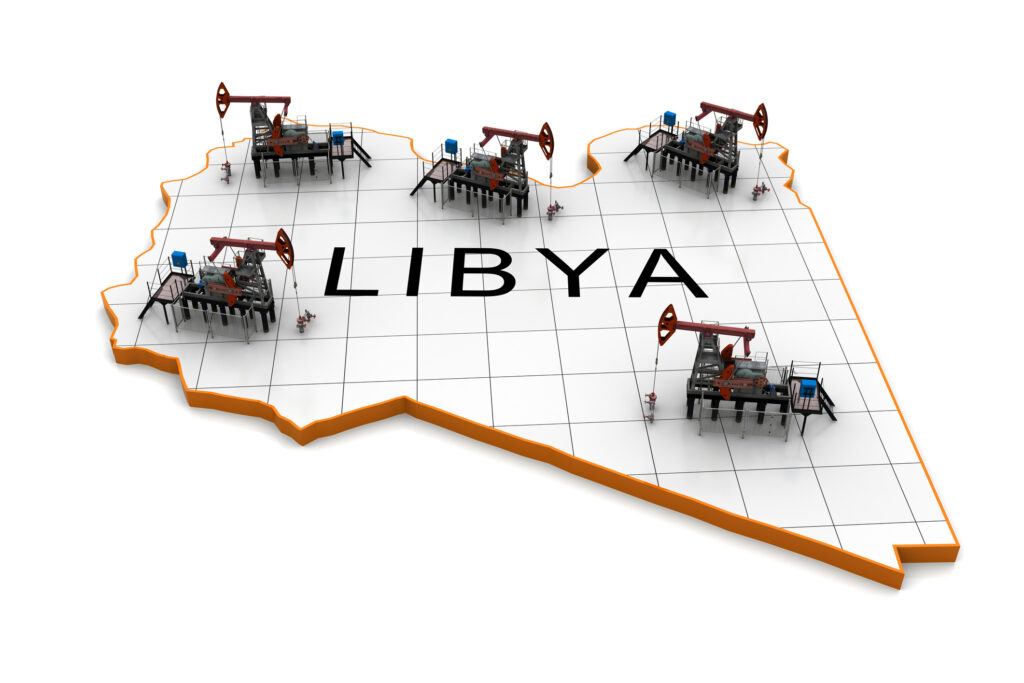(World Oil)– Chevron Corp. and TotalEnergies SE are competing in Libya’s first energy exploration tender since the 2011 conflict, the country’s state-run oil firm said, as the OPEC member looks to oil majors to help ramp up production to a record.

Eni SpA and Exxon Mobil Corp. are also among the 37 companies that have lodged interest, with contracts due to be signed with successful bidders by the end of 2025, National Oil Corp Chairman Massoud Seliman said in an interview in the capital, Tripoli.
“Almost all well-known international companies” are vying for the 22 offshore and onshore blocks, he said.
Foreign firms stepping back into exploration would mark a watershed for the North African country, which is home to the continent’s largest reserves but has seen production hobbled by more than a decade of conflict.
Libya is split between dueling governments in its east and west, and sporadic stoppages and rounds of violence have left much of its energy infrastructure neglected and damaged.
A representative for TotalEnergies declined to comment. Eni and Exxon Mobil didn’t respond to requests for comment.
Chevron said it constantly reviews new exploration opportunities, but doesn’t comment on commercial matters.
Authorities target daily oil output of 2 million barrels before 2030 — surpassing the 1.75 million-barrel peak reached during strongman Muammar Qaddafi’s reign in 2006. Libya currently pumps about 1.4 million bpd.
Libya last held a bidding round in 2007, four years before the NATO-backed uprising in which Qaddafi was killed. Winners of the new tenders will bear the costs for seismic surveys and other exploration steps though they can recoup those if commercial quantities of hydrocarbons are discovered, the chairman said.
NOC is awaiting approval of a development budget of about $3 billion, which will help raise output to 1.6 million daily barrels within a year, according to Seliman.
The sum will be partly used to develop companies such as Akakus, which operates Sharara — Libya’s largest oil field — in a joint venture that includes TotalEnergies, Repsol SA, OMV AG and Equinor ASA as well as Libyan state companies.
Waha Oil Co., a key Libyan producer, has capacity to boost production to 800,000 daily barrels from 300,000 currently, Seliman said. The development of its north Jalo field alone would add 100,000 barrels.
Spain’s Repsol in January resumed exploration in the Marzuq basin, joining a growing cadre of producers who’re returning to Libya after a 10-year hiatus. Eni, OMV and bp Plc also restarted drilling last year, ending a pause in place since 2014.
Despite its oil riches, Libya has little refining capacity and is dependent on fuel imports. That’s caused shortages in recent months after Libyan auditors ended a controversial system that saw the country swap its crude for fuel shipments. The NOC was left on the hook for about $1 billion in arrears.
The institution has now paid off dues from March and April and is working on May’s, according to Seliman, who said the government has now allocated 20 billion dinars ($3.7 billion) for fuel imports this year.
Though that won’t fully cover what’s needed — with fuel imports costing an average $600 million per month — authorities will be “understanding” if the NOC requests extra funds, according to the chairman.

